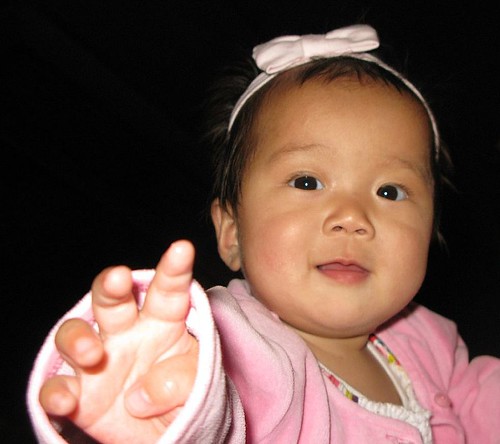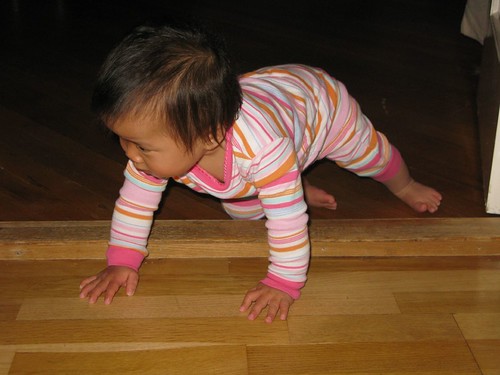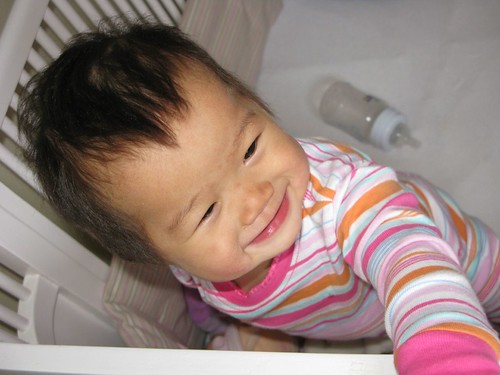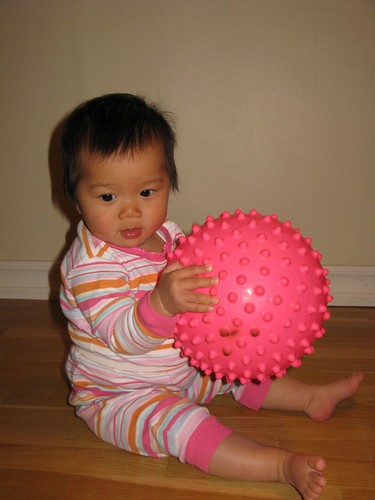
Image : http://www.flickr.com
Abstract:
This is the second document is a response to the work done in China, China, by the consultants in this field. Suffered on 12 May its worst earthquake for 30 years from 8 on the Richter scale, which in this period, over 70,000 dead and millions homeless and injured. Following the earthquake people across China from the condition of children who are victims of the tragic loss of parentsand death. Good heart people rushed the children to offer this assumption, to give them a new home and a new beginning. This document is to psychology what is a child, serious anxiety for many months if not years, and raise awareness among potential users to the trap of a hurry to adopt quickly, which could be a problem child exploring expect with serious health problems mental future.
Introduction:
Explorationadoption of children is very well-established concept in particular the United States and Europe in other areas and the long-term study on the effects of psychological damage seen after natural disasters to occur in children in the short and long term. Already in 1937 David Levy in the United States initiated the first study of how children are affected by adoption in a foreign family in a new environment and the absence of biological mother. Levy has seen the plight of these children from aearly age and the cumulative effect over the years for mental health problems in adulthood. This ground breaking research, many other psychologists have been followed and confirmed the loss of acceptance if the obligation to help the child riding on 'needs.
The effect of the decision:
Jean MacLeod wrote in adoptive families magazine, "The life of every day with a new child who is scared and perhaps angry or rejecting, with little sleep can also markMost parents lose their patience satisfied "So this is the fundamental problem of removing the child from his environment, the natural parents and friends to a home unknown (but comfortable) for a new life, where everyone knew and understood that it was beginning of their ripped at a time of terror.
The children of the earthquake are suffering emotional problems on my sudden loss of their parents, led soon after birth, as babies and as moderate to adolescence. Every childaccording to age and experience is the loss in different ways, but often deal with similar reactions. Most young people do not have the possibility of a relationship bond with their biological mother, this was often found deep within the personality of a child then the child's physical and psychological (Clothier 1943 merged). Child Development Research by psychologists as important as Bowlby (1960) clearly show the impact of sudden loss, separation anxiety andDevelopmental disabilities, the mind of a child in the future and how they can easily become dysfunctional adults later in life. Even with the best substitute mother in the world of subtle effects of interactions at an early stage of development can not be accomplished with kindness and patience of an adoptive parent. Older children from two to ten years to know that they have a personal loss, but can not assess pain as the reality of the situation. Disbelief, as in any process of mourningis the initial reaction, and angrily reject any attempt re-parent them to a different family. In China, due to the one-child policy, this has a worse effect, as no older siblings than for secondary binding and distribution of the process of mourning for them. For young people can be even worse - they have the cognitive capacity to understand the loss, but are too young to be left alone and be treated, younger than they really are well-intentioned employees. Oftenfeel their needs are ignored and the sense of self is not included because the authorities met their fate for the next 5-10 years.
What can expect new adoptive parents?
The emotional problems are in many ways, but some are obviously more common to most age groups, such as fear in front of close relationships, low self-esteem, and anger, immaturity, that the problems lie Products, behavior opposition, not responding to school, fastTemperament, frustration and depression. (M. Katz)
The fear of a close relationship:
They are young, your parents died in an earthquake, and suddenly it was shocking and unexpected. You are alone now, strangers are feeding, shelter, one can speak here, but the consultants did not understand the words. Your personal belongings are the things that went entertained. Coming soon are a beautiful couple, you go to treat it? I'm confused, who are these unknownWhat they want from me? The first thing that children learn most is to trust or distrust of adults, may in the child's reaction to situations often form the basis for decisions. were taken away in the minds of parents of the child, lost forever, no chance to say goodbye and kiss, hug or smile. This can happen again and took the child at this time to decide who is terribly hurt someone getting too close, so the only solution is to maintain a distance both physically and mentally. The newParents can not understand why the child hates, rejects his kindness, and to communicate with them once again the parents feel guilty, want to give the child back, I think this new opportunity, ungrateful, this new beginning . New parents are beginning to reject the child so the child sees this refusal as a confirmation of their new faith, which is close to dangerous. In the mind of the child's safety is in the independence, without the need for adult care.
LowSelf-esteem:
All age groups of children feel the sudden loss in some way as a punishment for something they do or think of themselves before the earthquake. For an adult this is irrational thinking, but a child, it makes sense. They (the child) must be something wrong to be punished in a terrible way. Feelings of worthlessness as rich as the child grows. New parents talking about expectations for the future, how they are going to help the child to do something, butto please a child of this new pressure on parents is difficult to work when not even had time to suffer the loss of their own. This thought leads to the "Chosen Child" complex where the child feels that are specific for new parents and must make every effort to make their gratitude for the show, taking. But trying to live for the child, these expectations can lead to feelings of failure, lack of self-esteem and depression. Can not the "perfect child" for them andemotionally drained. If your child is growing, the physical differences between them and their adoptive parents to see, other highlights of their alienation and the feeling of being out of place in the family and the world.
Anger:
The boy angrily expressed their frustration with the new situation, can not relax, they feel no creature comforts at home, the conversation of friends and other family members are not understood, they feel it is difficult for things without askingDiscomfort. Finally, their emotions boil over and break. The problem is that suddenly and violently, often break for small children or objects to destroy a new toy to give as a way to lose their pain and feelings in this new world.
Immature:
Even older children and is ready to go back in some aspects of their behavior. Lying is common, say some of the new parent company, please say I'm happy (if not only)Thank you to more normal (as a sop to deny new parents), broken or stolen (money to prepare for another loss - the money can help you save money). oppositional behavior manifests itself in the need for autonomy, the refusal to help think through the new parent company, the lack of a suitable model looks like and how it can lead to emotional problems such as underachievement and school violence, other children.
New parents:
For adoptive parentsThis time, parents can be particularly difficult, they thought they were doing something noble, a good deed for society to take this child, who, as a tragic start in his young life. Yet, over time and do all the emotional turbulence of child problem behavior, frustrated, angry, violent, child, in some cases, both verbally and emotionally abusive. The child has become a constant dream into a nightmare of sleepless nights andThe struggle for supremacy. Since there is no natural bond of parents believe the child in a single visitor, after looking until you need more. If your child is growing like biological parents and adoptive parents often of the opinion that the problems over the years are the parents' fault and blame them for the dead child, not to teach the correct behavior when they were living. The majority of patients, new parent company will be a test of will on many occasions with the childcaused resentment and rejection.
Genes question:
There is no doubt that genes play a role in the physical aspects of a child looks like and growth. However, this should not be confused with social development that takes place primarily within the family, colleagues and assistants future. When the child grows can see them, they are not like other members of the family attraction and physical appearance. This can lead to two psychological consequences, first a sense ofnot part of the concept of outsiders and the second the feeling mentally different. This is not necessarily true, but simply a desire for self-knowledge. This often leads to the older child, ask where they come from, who their real parents what had happened to them why I left with you, I'm a bad person, then how can I find Them? This is a moment of great difficulty for new parents, as have the prospect of rejection late after perhaps years, ifAddress their concern.
Refusal by:
Many young parents unable to cope with the problem in children and came to the decision, the agencies give the child back to the idea of reorganizing other parents. This is especially true for couples with children, let alone the possibility of a child from the earthquake as a substitute for not having one of them. Others can not face the loss are. They said the neighbors areTo adopt a child in the earthquake, as a badge of honor. Later, they have to hide the problem child of the same neighbors who see now most of the conduct described above. Those who can cope for a few years also send your child to school as a way for little 'peace itself, but the child sees this as a further loss of confidence. Some may develop serious psychological problems are hidden or in psychiatric hospitals, many not to return. For the growing childThis could be the last straw in a long series of denials and painful experience, often leads to long-term psychiatric care and suicide attempts or drug addiction.
In summer:
The earthquake in China like so many other terrible disasters caused thousands of children without parents, homeless and bereaved. Many good-hearted people here come to the rescue, maintenance, and adopt these children tragic. But not all new parents are ready for this task together with the best intentionsworldwide, many of which can be with a baby, give emotional psychological anxiety that followed his whole life to meet? For many children it would be best in the region are grown and make a new kind of family environment. Children of loss of bond between them much more than sound strange to adult education. Issues of trust, security and routine are more important today decent people who think that money can to comfort and carethe place of biological parents in the short or long term. The solutions are not perfect - but new parents should be aware of the responsibility they assume with the tragedy of this child! In this work, I have good reason, looked at the negative aspects of adoption, and that is to warn for a stop and new potential adoptive parents on the second only to think and act with compassion. Of course, many children of the adoptive parents grow to appreciate their new home and loving, involvedParents. However, no new parent company begins with the child, the ideal mother rushes and says I love you five minutes after arrival. The realism is required in this tragedy to protect the interests of children and its future as part of a harmonious society in China.
End .....
References:
David M. Levy (1937) American Journal of Psychiatry - 94, Primary affect hunger.
F. Clothier MD, (1943) the psychology of adopted child
NNVerrier (1993) Primal Wound
J. Bowlby (1965) Loss / Separation Anxiety






